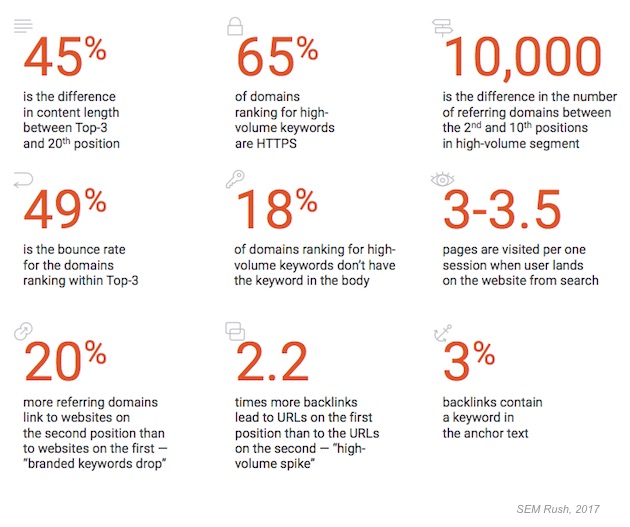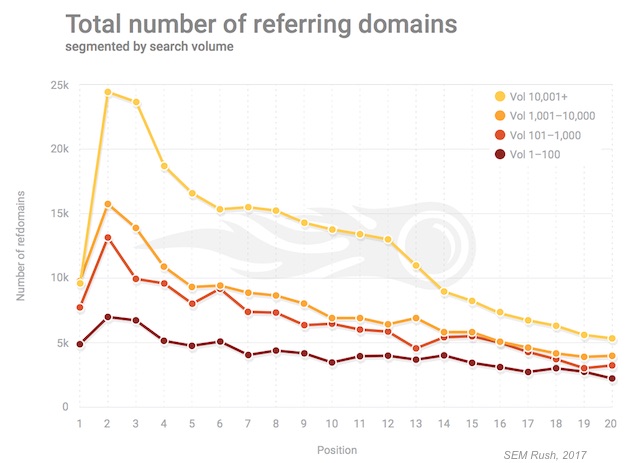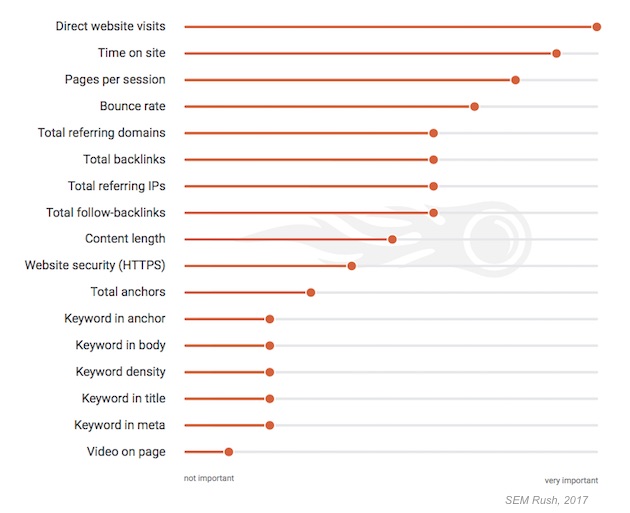Direct website traffic is the factor that most influences how well pages rank on Google's search engine result pages (SERPs), according to recent research from SEM Rush.
The annual report was based on an analysis of 600,000 keywords with a range of search volumes. The researchers examined the top 100 SERP results for each term to determine which factors influence page rank on Google.
Pages that are hosted on websites with a high number of direct visits (sites which people often go straight to) tend to consistently rank well in Google search, the analysis found.
Other factors that have a strong influence on how well pages rank include time on site, pages per session, and bounce rate.
Overall, factors that signal website quality and relevance to Google are much more influential on page rank than traditional SEO factors such as keyword density.
Some additional key findings from the report :
The top three ranking pages for a keyword tend to have content that is 45% longer, on average, compared with the page in the 20th position.
People visit between 3 and 3.5 pages, on average, after arriving to a site via search.
Some 65% of pages that rank for high-volume keywords use HTTPS.

A page is more likely to rank well in search if it is hosted on a website that receives a high number of backlinks and has a high number of referring domains, the analysis found.
The link between page rank and the number of backlinks/referring domains is especially strong with high-volume keywords.

About the research: The annual report was based on an analysis of 600,000 keywords with a range of different search volumes. The researchers examined the top 100 SERP results for each term to determine which factors influence page rank on Google.





